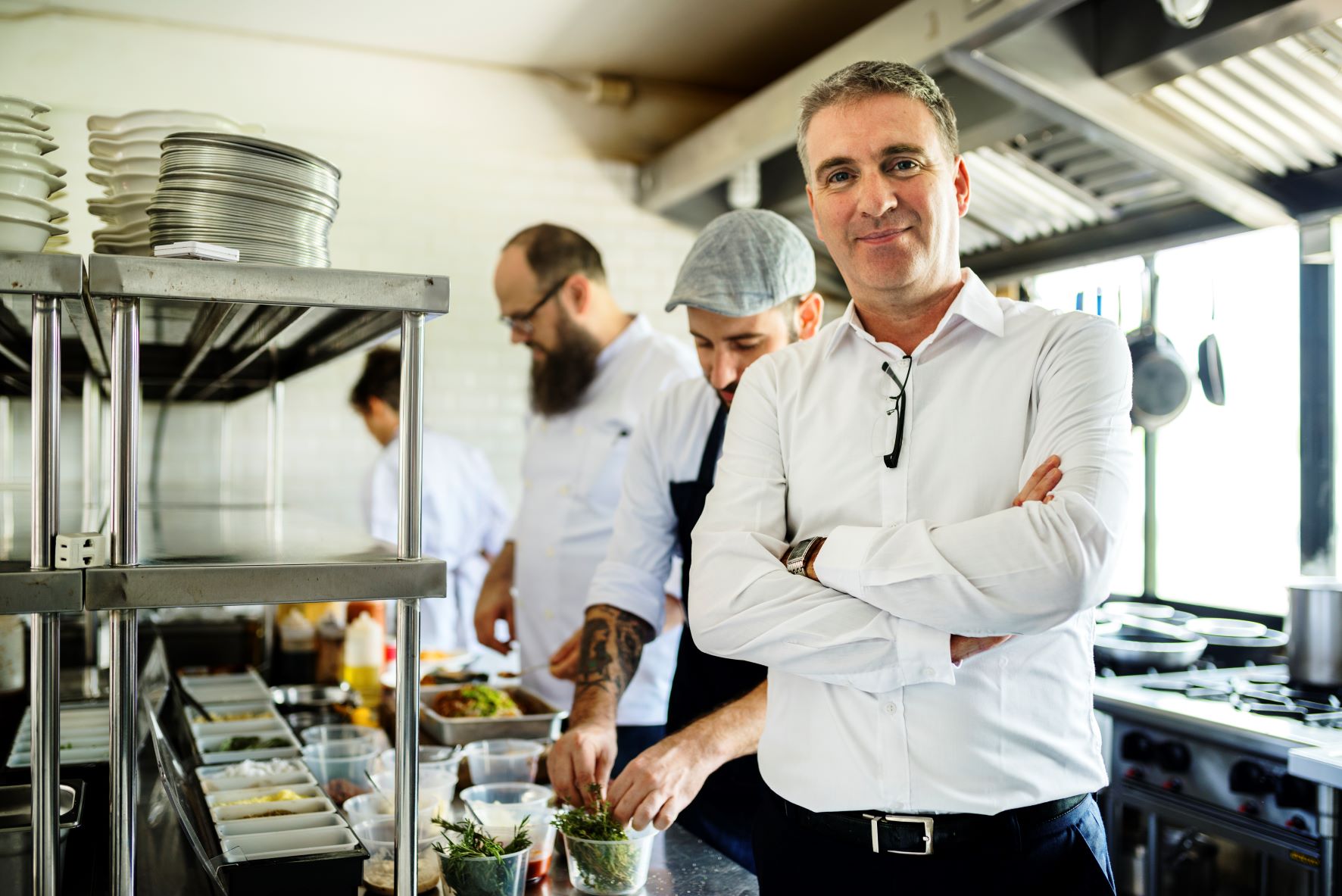
Franchise vs. Independent Restaurants: What works best for me?

As a first-time restaurant owner, navigating the ins and outs of the restaurant industry can be tricky. Understanding the difference between a franchise restaurant and an independent restaurant will help aspiring owners figure out which format is best for them. Each has its advantages and disadvantages, so aspiring owners need to choose the format that aligns with their needs and goals the best! Keep reading to learn more about each style of restaurant!
What is a Franchise Restaurant?
A franchise restaurant consists of a restaurant brand granting third-party operators the right to use the business name, branding, and model in exchange for royalty fees. The franchisor is the company owner, while the franchisee is the restaurateur who purchased the rights to use the brand name and run one of their locations. The cost of acquiring a franchise restaurant is usually high and is accompanied by a weekly or monthly royalty fee. Franchise restaurants are easier to run for new and inexperienced owners, and have a lower risk of failure.
In a franchise restaurant, everything is already predetermined. Since they’ll be managing the location of an existing brand, that means they’ll have to follow specific rules and guidelines. This does make the overall startup experience easier, but it’ll be compromising any creative freedom and decision-making powers. Along with a predefined menu, the franchisor will often help the franchisee by providing specific equipment, marketing strategy, software, and training supplies to support their restaurant.
What is an Independently Owned Restaurant?
An independent restaurant is created and run by its owner. It is not connected to any corporate chain restaurant or existing brands. When opening an independent restaurant, the owner has full control and decision-making authority over everything. They can implement changes however they want without any restrictions. This means the menu, theme, branding, and so much more are fully customizable and up to the creativity of the owner.
Running an independent restaurant does come at high risk, especially for an owner who's just starting. While the initial investment may not be too expensive, the business will require a consuming amount of time and effort put in to ensure everything runs smoothly. Building an independent restaurant comes with a learning curve. There’s a lot that goes into operations and management when running a restaurant. The owner will pocket all the profits, but they’ll need to make sure their efforts are being used in the right way to ensure a profit!
Franchise Restaurants vs. Independently Owned
To compare the differences between a franchise and an independent restaurant, we’ll sort them into a few categories!
Setup: The initial setup for a franchise is much easier than it is for an independent restaurant. That’s because a lot of the starting materials are given to the franchisee to stay consistent with the other locations of that brand. An independent restaurant owner will have the freedom to choose the size and location of their establishment. While a franchised restaurant will have the location and size picked out for them already. With a franchise, the location will come with the equipment and supplies needed to run it properly and fulfill guest needs. An independent owner will be in charge of finding and purchasing their equipment and supplies.
Operation: Opening an independent restaurant gives the owner full control of everything. Franchise restaurant owners don’t have much control at all. They will be given a pre-decided menu to stay consistent with the brand, as well as rules and regulations they’ll need to follow. This is great for owners who want to treat their restaurant as more of an investment but it leaves them with no room to input their own creative opinion. Owning an independent restaurant is perfect for an owner who wants to be creative and isn’t afraid of the time and energy it takes. They will be able to work closely with their chef to form their custom menu, as well as design the brand however they choose. Both the independent and the franchise restaurant owners will be in charge of hiring their staff. This may come as more of a challenge for the independent owner as they don’t have an existing brand to help them recruit workers.
Support: A franchise restaurant will be granted a high amount of support from its franchisor to keep a positive brand image. Being a part of an existing brand means the franchisee won’t be required to do much of their marketing or paperwork. Most of the marketing efforts will be taken care of by the franchisor themselves. Owning an independent restaurant is a different story. The owner will be required to plan and execute their marketing strategy. They will also be in charge of doing all of their paperwork, as they won’t have the same support system as the franchised restaurant. At the end of the day the independent restaurant owner will take home all of their profits, but the franchisee is left paying a recurring royalty fee.
Running an independent restaurant and competing with a larger franchise may sound daunting, but with a solid strategy, it’s possible! Here are 4 tips and tricks to implement into an independent restaurant strategy!
4 Restaurant Marketing and Engagement Tips
1) Market in Unique Ways: Restaurant marketing is something that many independent owners struggle with if they’re not familiar with the marketing field. However, as a single-location establishment, there is no need for national marketing or anything big and extravagant. Just like any other company, independent restaurant owners should cater their marketing efforts to their specific audience. In many cases for an independent restaurant, they’ll want to focus on a local business! This can be done successfully and engagingly with a unique approach. Hosting community events or teaming up with local organizations will help to get the restaurant's name out to the public. Word-of-mouth marketing is excellent for smaller businesses because it’s the best way to gain foot traffic and build a loyal customer base!
2) Engage With The Community: As an independent restaurant owner, making a good impression on the local community is crucial. The best way to leave a lasting impression is by getting involved in events and engaging with potential customers. Local businesses are more flexible than chain restaurants within the community because they can take part in local events and activities! Handing out free samples during an event will give people the chance to try out the food, and it might even make them hungry for more!
3) Build a Strong Team: When opening an independent restaurant it’s crucial to hire a reliable team. The restaurant's atmosphere will be defined by its employees. Hiring a staff that is friendly and welcoming will help personalize the restaurant and make it feel more comfortable for guests. The positive environment will leave a good impression on the community. Being a single-location restaurant, its success is highly determined by the effort and quality of work put in by its employees. Not only does the team need to leave a good impression on guests, but also on each other. It’s important to maintain a healthy relationship between coworkers to prevent conflict and bad service. A great way to keep the team motivated and engaged is by offering rewards for high-quality work!
4) Play to Your Strengths: One of the benefits of running an independent restaurant is that the owner doesn't have to comply with any rules and regulations created by a larger franchised chain. They will have complete freedom to build their brand any way they want. This can easily be used as an advantage over their competitors! With the number of restaurants in the U.S continuing to grow, being unique is the best way to grab the consumers' attention. As a new single-location restaurant, it’ll need to play to its strengths. Using a unique and engaging approach could be the difference between standing out and blending in.
Click below for more information about restaurant marketing and how our platform provides all the digital restaurant marketing tools you need to create lasting engagement with your guests and automatically target the right guests with the right offers at the right time.
Related bites

Everything You Need to Know About Virtual Kitchens
Thinking about expanding your restaurant? These tips will help you decide if opening a virtual kitchen is the way to go!

Which Restaurant Delivery Service is Best for my Brand?
The demand for food delivery has skyrocketed. Here's how to decide which delivery channel works best for your restaurant.

Financial Planning and Budgeting for Restaurant’s Long-Term Success
Discover the essential strategies to ensure your restaurant's long-term profitability through effective financial planning, budgeting, and savvy decision-making.


Comments